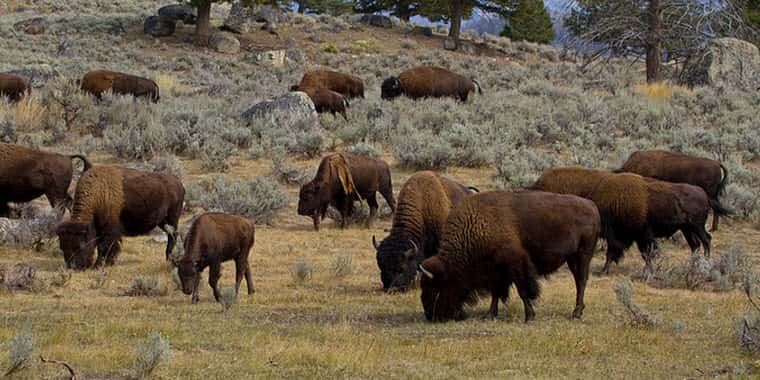Traceability and electronic identification have been a big topic in the livestock industry for years. In some cases, a heated discussion depending on which part of the industry a person talks to. USDA’s Animal Plant Health and Inspection Service (APHIS) recently announced they will be implementing a radio frequency identification (RFID) system by 2023 for breeding cattle and bison and providing ear tags free of charge.
The cattle industry has been a mixed bag when it comes to RFID. One of the biggest push backs is wanting the system to be voluntary and not another government mandate. Some producers ask: What will RFID tags cost? Who has control of the data? Supporters note the ease of disease traceability if there were a disease outbreak and enabling consumers to learn more about their food.
The National Bison Association (NBA) however, welcomed the announcement by APHIS to implement the use of RFID tags. Dave Carter, Executive Director for NBA, told the Northern Ag Network there are three key differences between the business of bison and cattle when it comes to RFID.
- Bison Aren’t Branded
Carter said the industry has never branded their animals but producers have been using ear tags for a long time as a means to track animals.
- The Type of Market
The higher end market that bison are sold into; customers want to know more about where their food comes from. Carter stated, “The use of these tags would give us the ability to have some good traceability and transparency in our business.”
- The Canadian Model
Carter mentioned the NBA works very closely with the Canadian Bison Association which allows the commodity groups to be the distributors of the tags. “Canadian bison producers that have been tagging their animals for a long time, not just RFID tags but with their mandatory animal ID tags, they get those tags through the Canadian Bison Association. It’s a little less onerous when it’s coming through the association than from the Federal government,” Carter said. “If the association is handling RFID distribution that could mitigate the costs to producers.”
NBA has offered to work with USDA APHIS to help producers adapt to the technology. They believe there are benefits to the system and they can protect the confidentiality and privacy of producers.
Producers have until October 5th, 2020 to comment on the proposed rule by USDA APHIS on implementing the RFID system by 2023.
###
Leif Bakken – Northern Ag Network 2020


